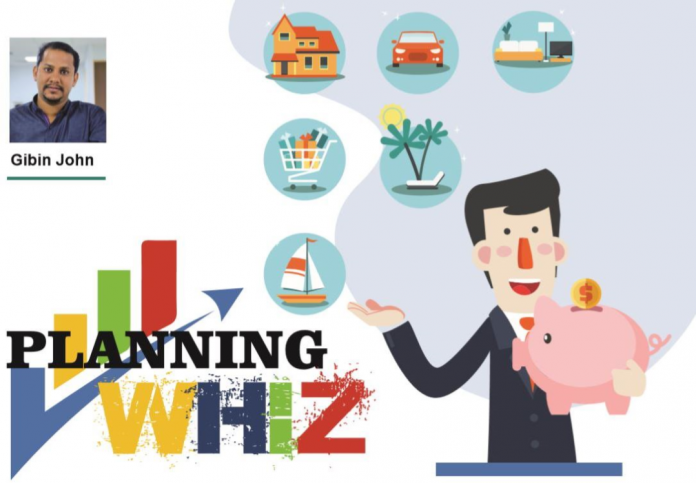My wife and I are software engineers, and we both are 30 years old. We have a six-month-old daughter. We are sharing our financial information with you so you can help us with our financial planning. Our total monthly salary is ₹ 2,25,000 after all deductions. Currently, we don’t have any liability. Our monthly living expense is ₹ 35,000 and rent expense is ₹ 20,000. We have a fixed deposit of ₹ 32 lakh. We are investing ₹ 40,000 in recurring deposits every month and the current balance is ₹ 7 lakhs. We have recently started investing ₹ 35,000 through mutual fund SIP and its current value is ₹ 3,00,000. We have company-provided health insurance of ₹ 4 lakh each.
1. We are planning to retire at the age of 50 and wish to build a corpus of ₹ 3 crore towards it.
2. Every two years plan to go for a foreign trip, the expected cost is ₹ 2,50,000.
3. Need ₹ 40 lakh for daughter’s higher education when she is 18 years of age.
4. Need to buy a flat worth ₹ 75 lakh after 10 years.
5. Wish to buy a car worth ₹ 15 lakh next year.
6. Require ₹ 20 lakhs, in today’s value, for wedding expense of daughter after 25 years.
We seek your valuable suggestion to fulfil our dreams and request you to check whether any change is required in the investment pattern which we are currently following.
Gibin John, a certified financial planner replies:
I appreciate your enthusiasm to create a financial plan in the early years of your career. This will help you to achieve your goals more efficiently. Both of you are engineers and receive a decent income from the job. Total monthly income of your family is ₹ 2,25,000. After deducting the living expenses of ₹ 35,000 and rent ₹ 20,000 you have a surplus amount of ₹ 1,70,000. Out of this surplus, you are investing only ₹ 75,000. Here we assume that the balance amount of ₹ 95,000 you are keeping in a savings account and later you move it to the fixed deposit.
Firstly, you need to set up an emergency fund for meeting any unexpected financial needs. You need to create a corpus equivalent to a minimum of six months expenses as a contingency fund that is ₹ 3,50,000. For this, you may utilize your recurring deposit.
Your immediate goal is to buy a car next year. You have fixed the budget for this goal as ₹ 15 lakh. The amount for this goal can be taken from the fixed deposit. You need not go for a loan.
Your next goal is buying a flat after 10 years. The expected cost of ₹ 75 lakh may become ₹ 1.35 crore due to inflation. You may allocate ₹ 17 lakh from the fixed deposit and existing mutual fund value of ₹ 3,00,000 towards this goal. Along with these investments, you may start an SIP of ₹ 45,000 in equity oriented mutual funds to fund the goal.
Your next important goal is to build a corpus for your daughter’s higher education. You will need this amount after 18 years and the expected cost is ₹ 40 lakh. Because of the impact of inflation, if the education cost increase by 8% then the cost will be ₹ 1.60 cr. For accumulating this amount, you must invest ₹ 28,000 as a monthly SIP in an equity oriented mutual fund. Also, you want to accumulate a corpus of ₹ 20 lakhs, in today’s value, for your daughter’s wedding expenses. This amount will become ₹ 86 lakh if the cost is inflated at 6%. You can accumulate this amount by investing ₹ 12,000 as SIP in an equity oriented mutual fund.
Most important goal is building a corpus of ₹ 3 crore for meeting the expenses during the retirement period. You are planning to retire at the age of 50. Your current living expenses are ₹ 35,000, if you want to maintain the current living cost then you need to build a corpus of ₹ 3.53 crore. For accumulating this amount, you need to invest ₹ 49,000 as SIP. You have not mentioned the EPF contribution, so I did not consider this in the corpus calculation.
Further, you wish to go on vacation every two years. Towards this, you may invest ₹ 11,000 per month in recurring deposit or debt oriented mutual fund. Also, you must increase the amount by ₹ 2,000 every year then you can manage the cost increasing due to inflation. If you start a recurring deposit, then keep the investment period as two years.
You both should take term insurance of ₹ 1 Cr each. Currently, you both are covered by the company health insurance so no need to take the additional health insurance now.










